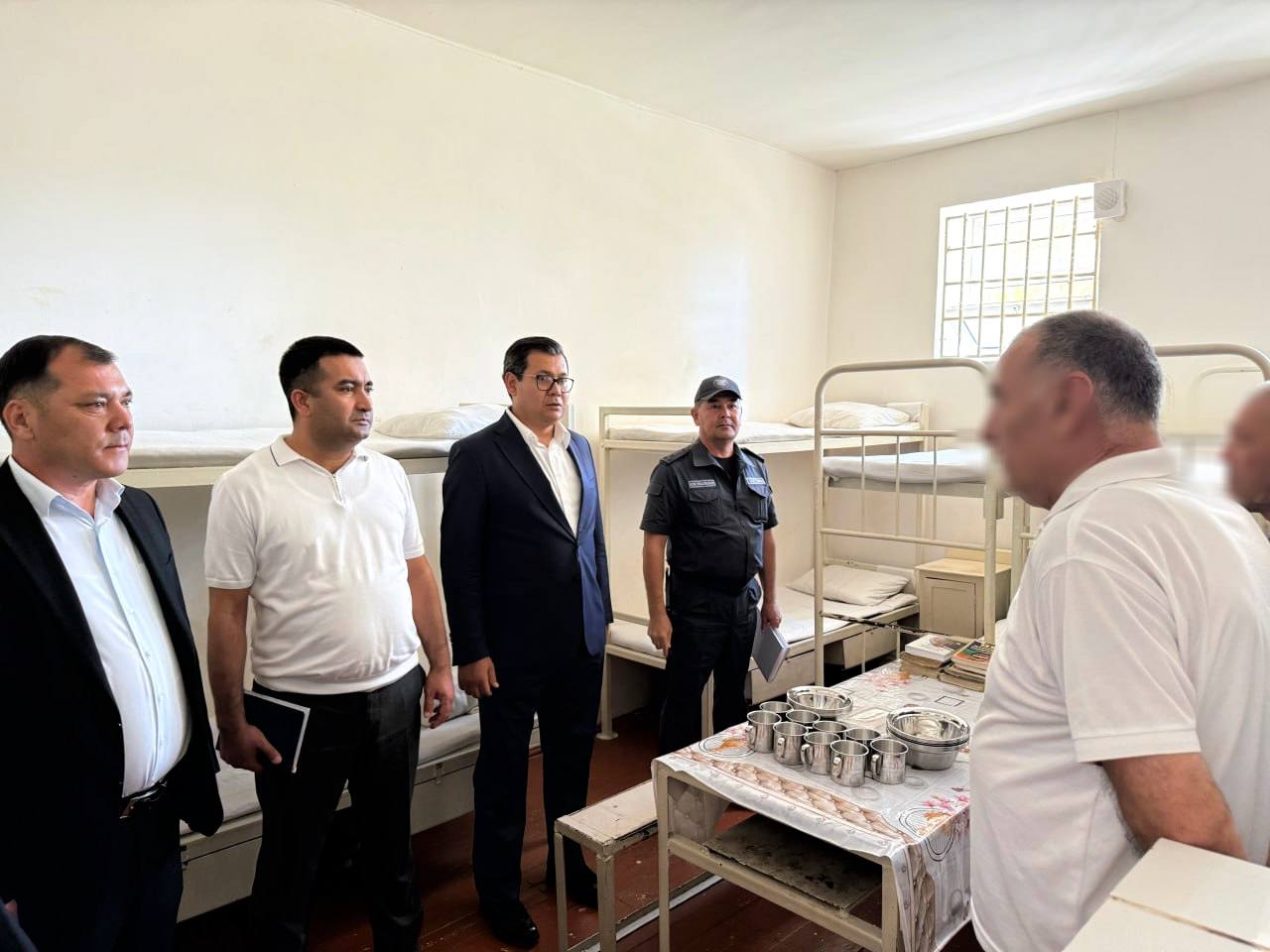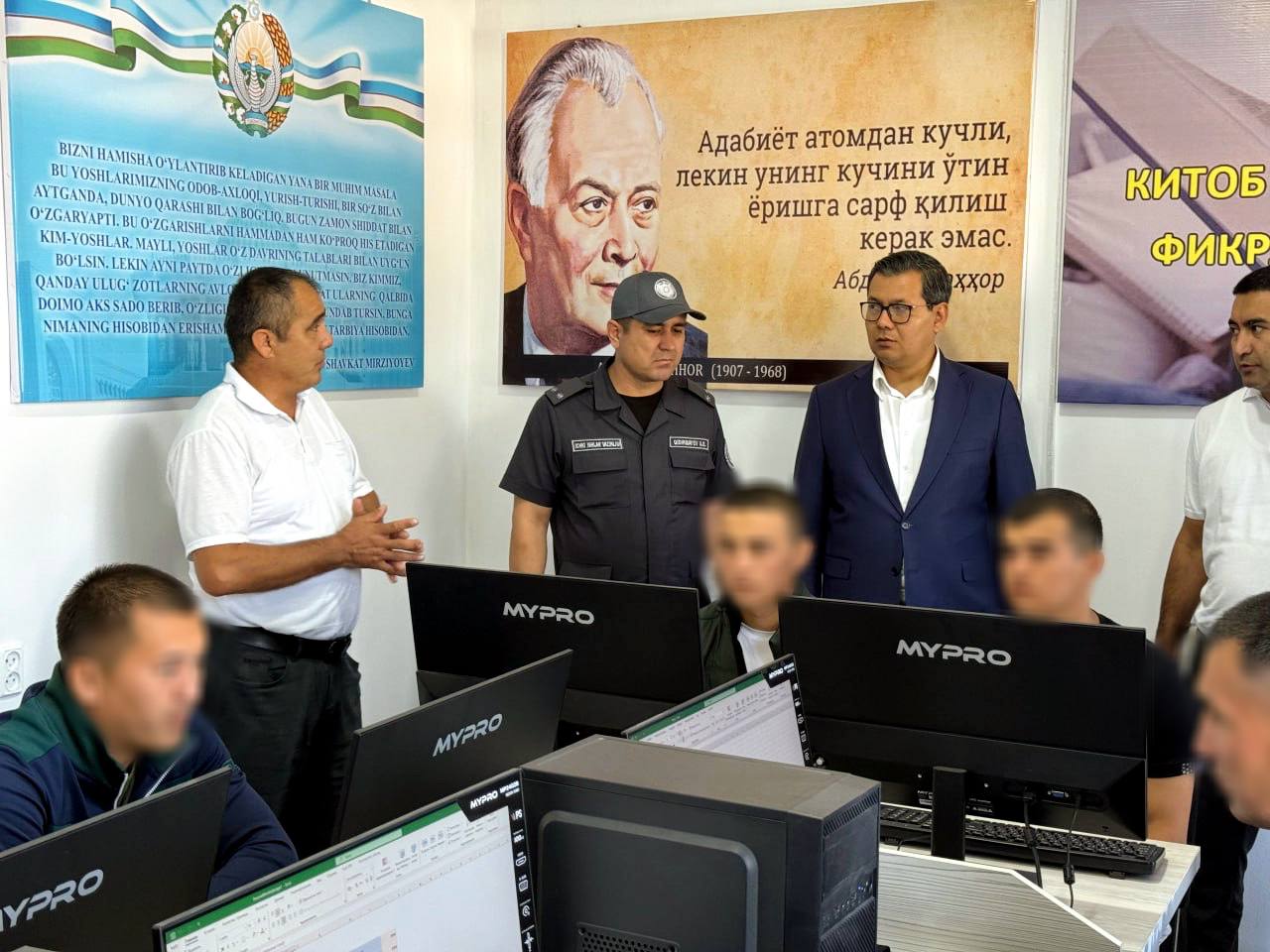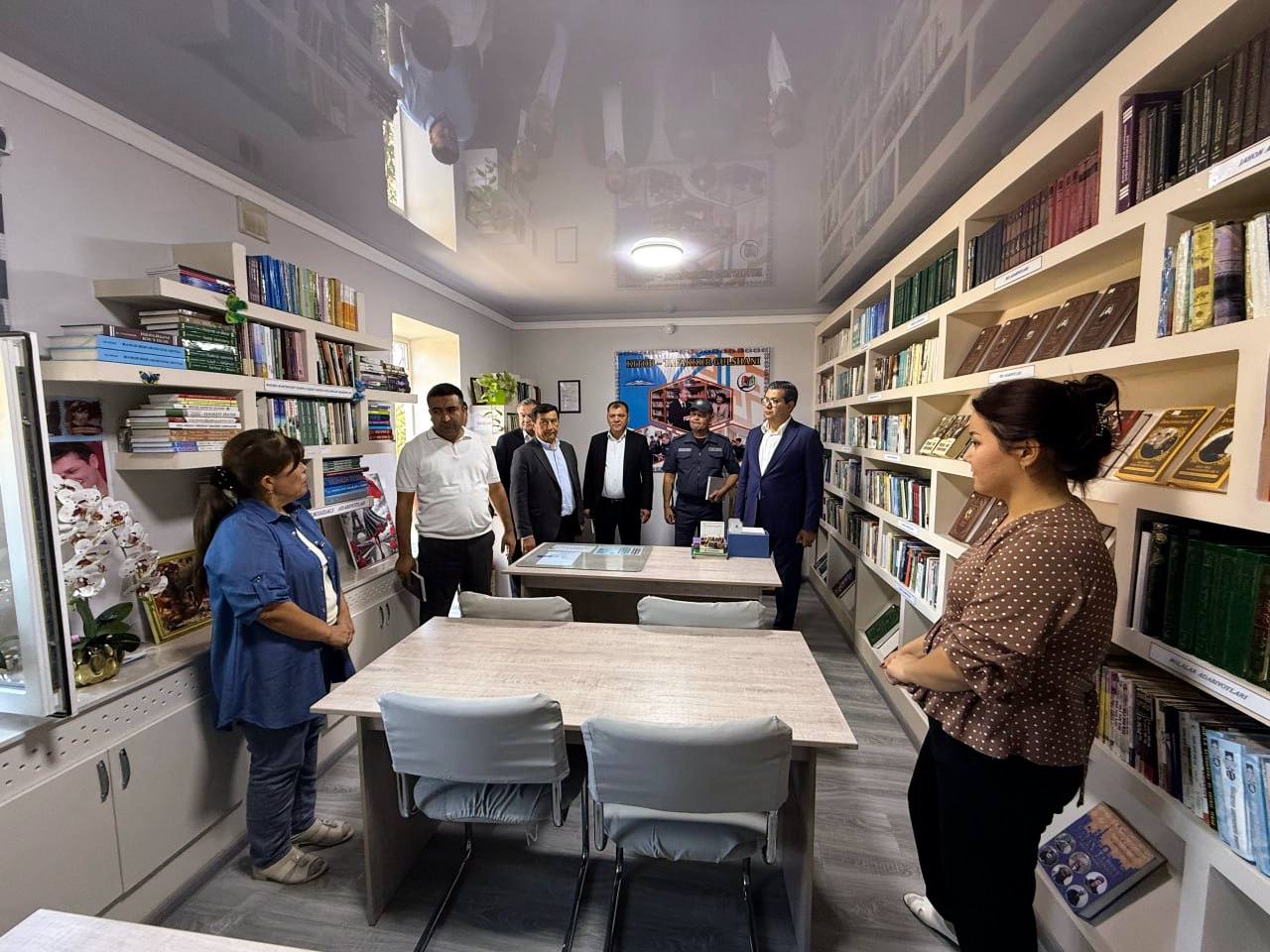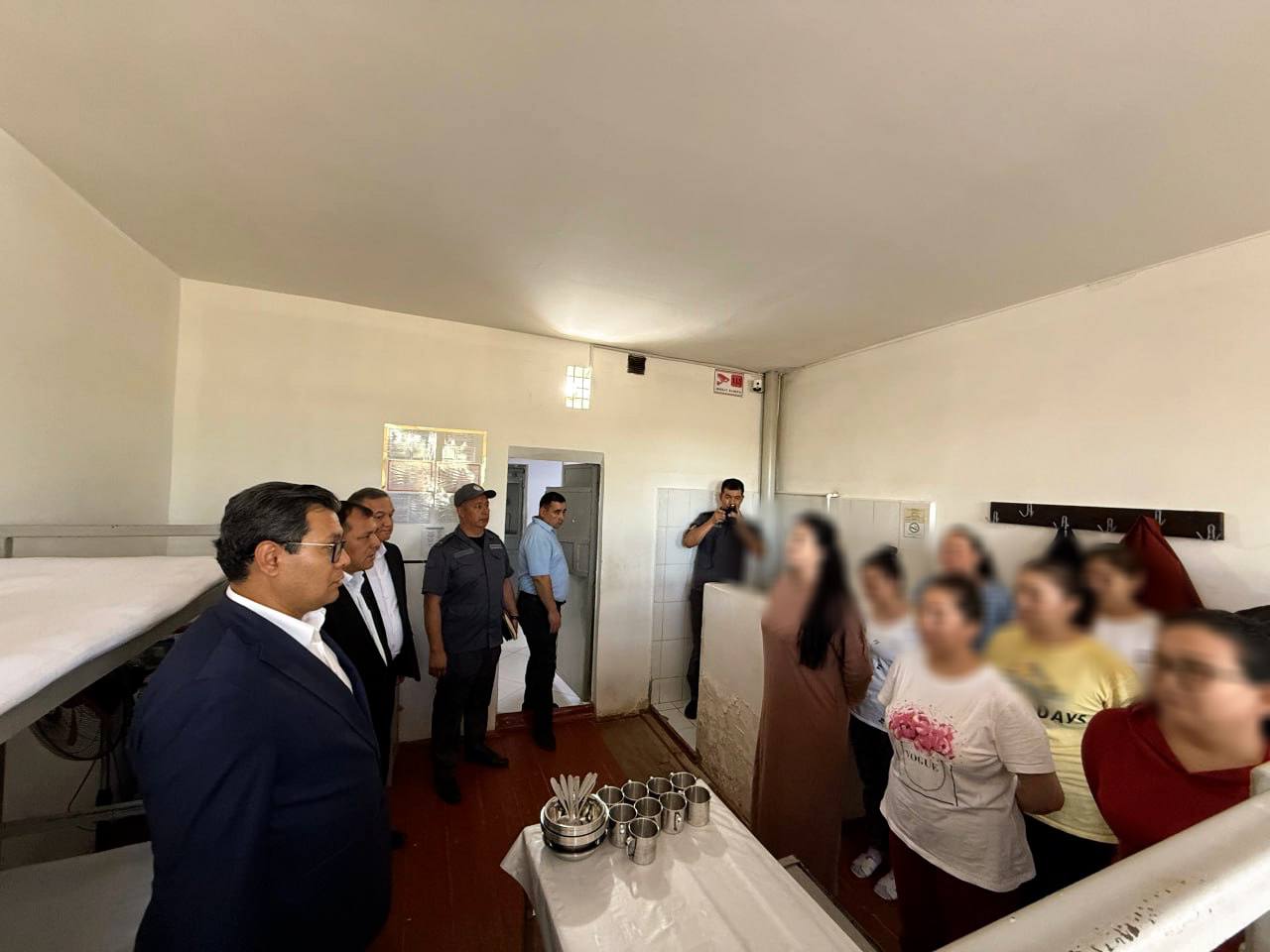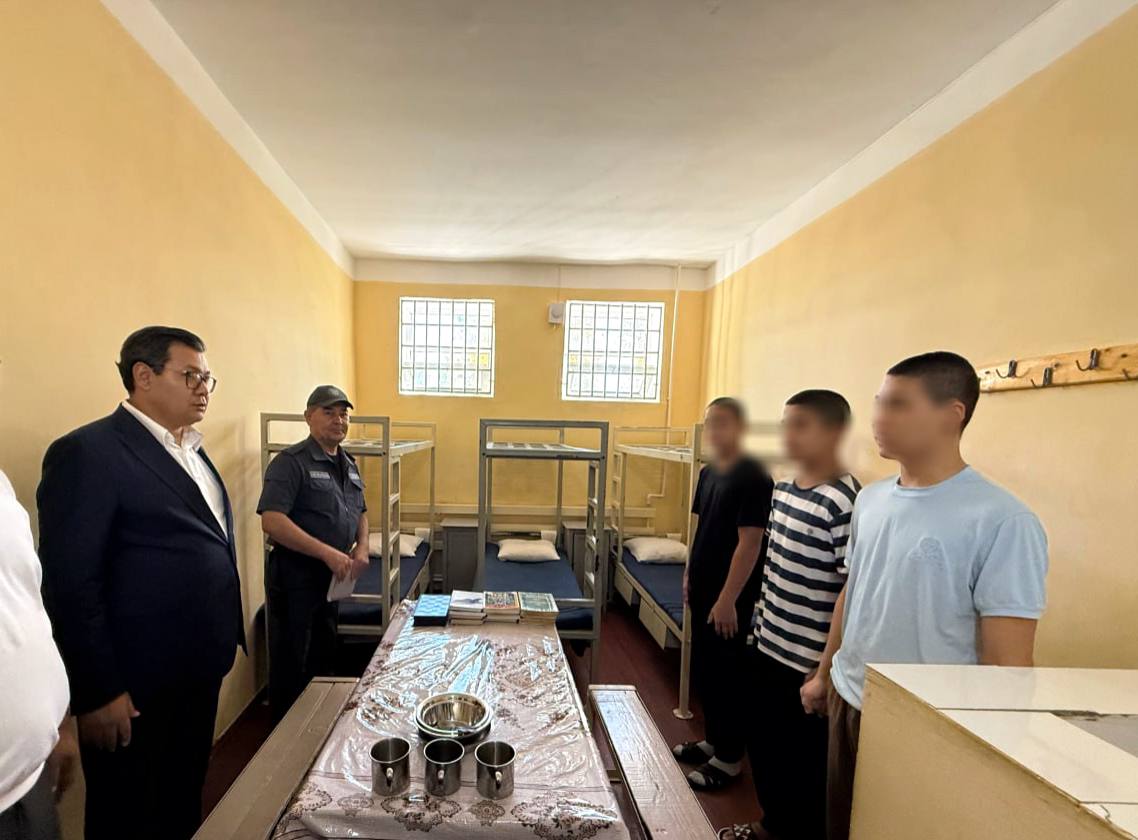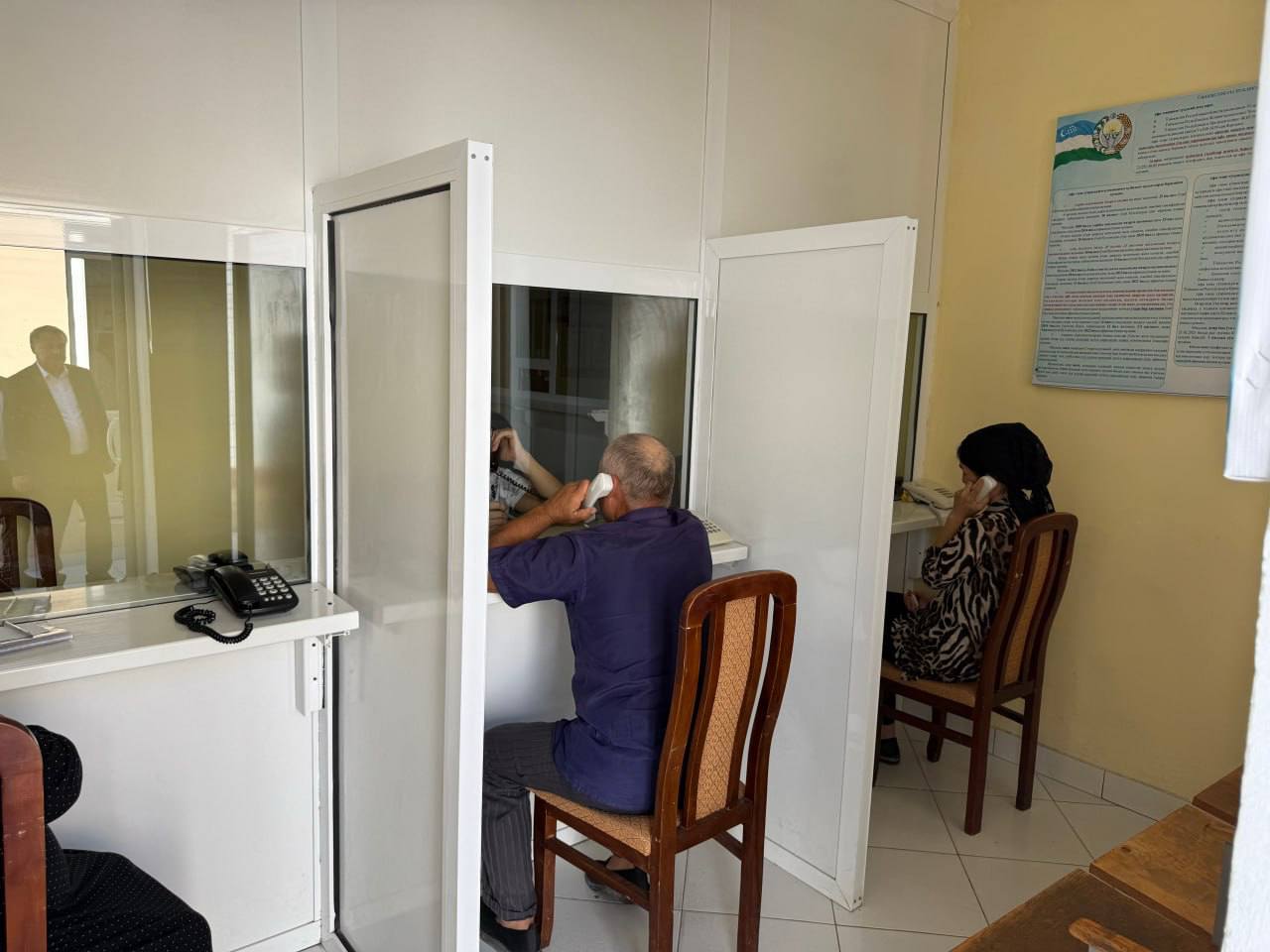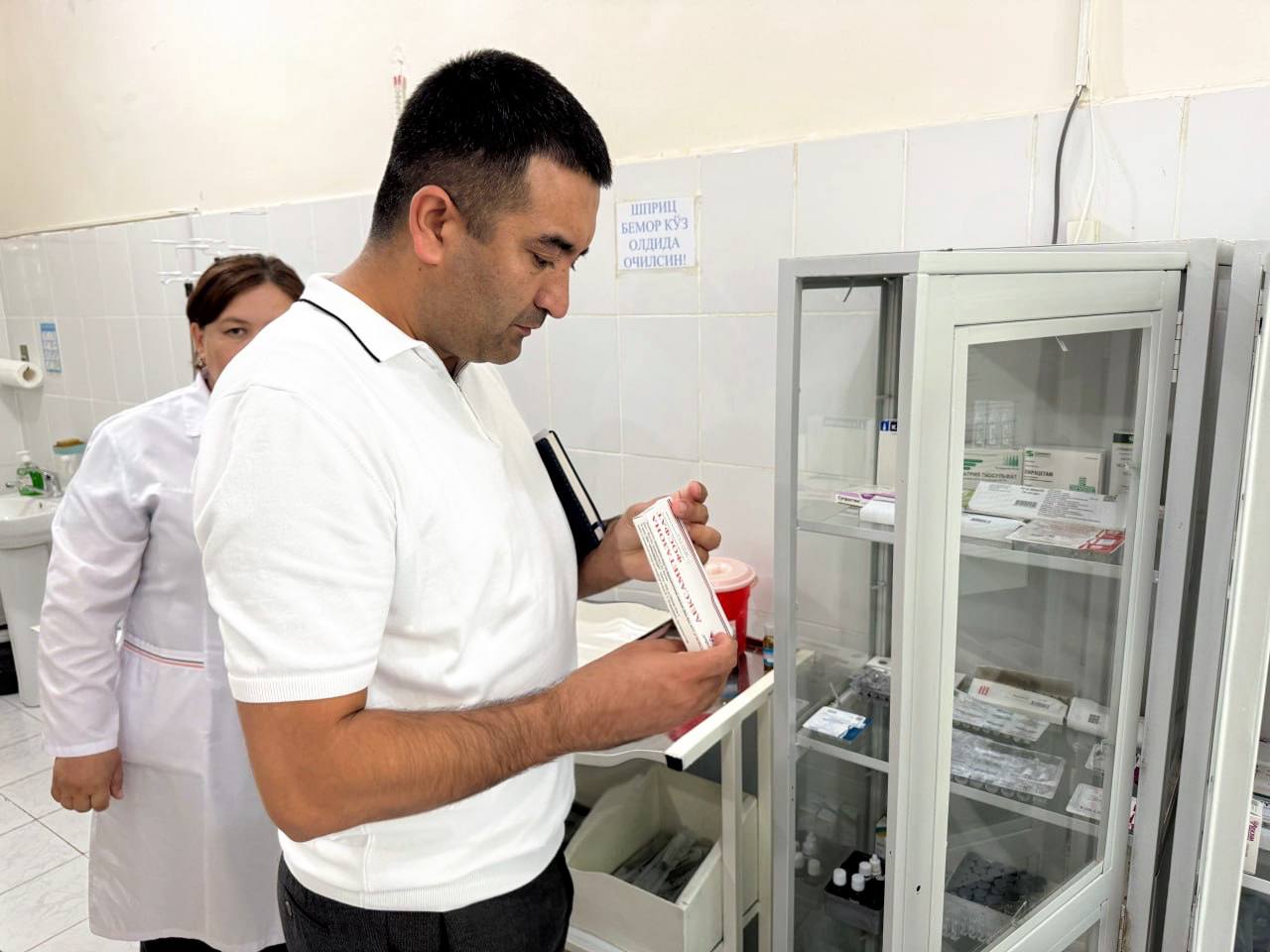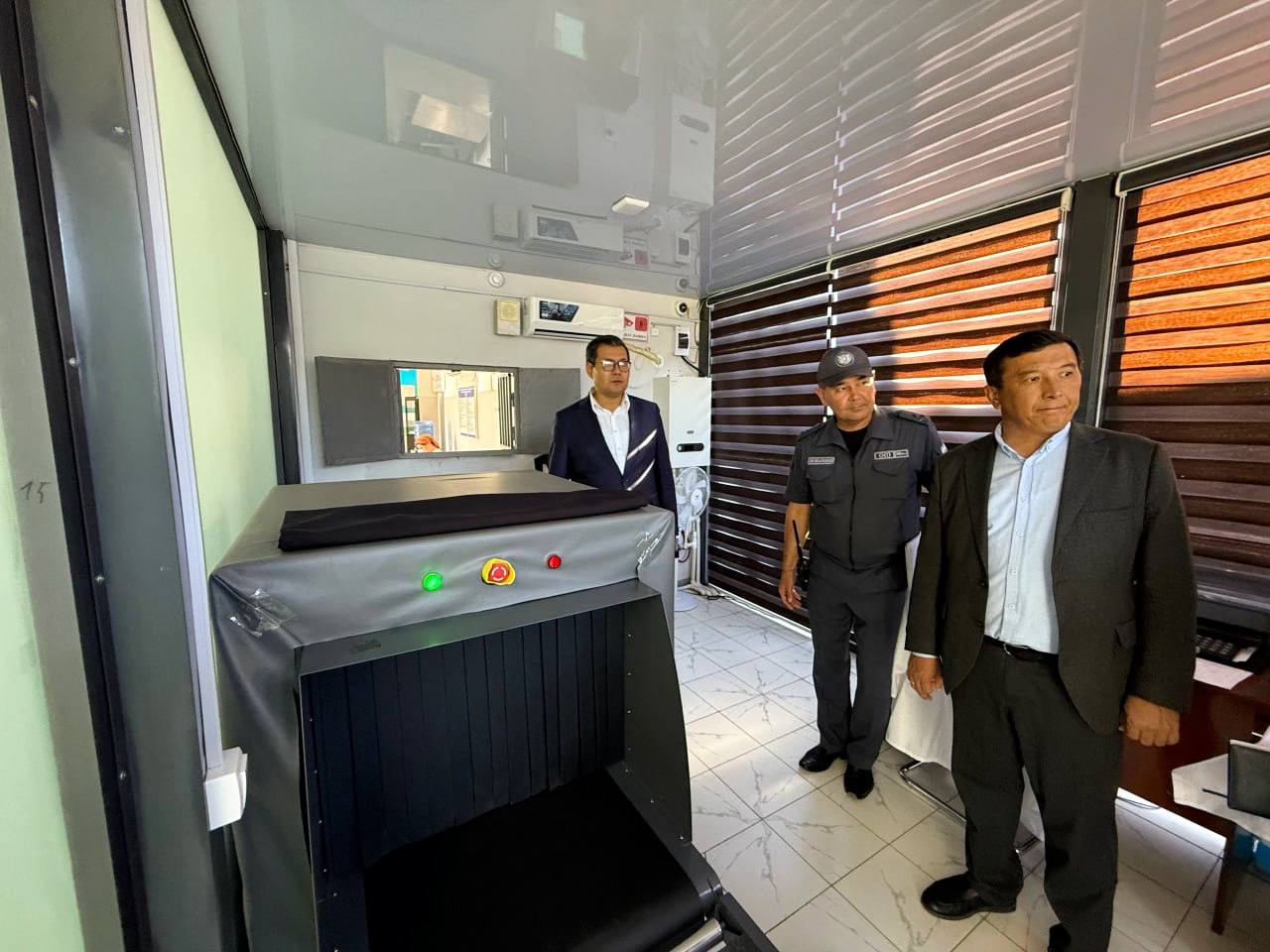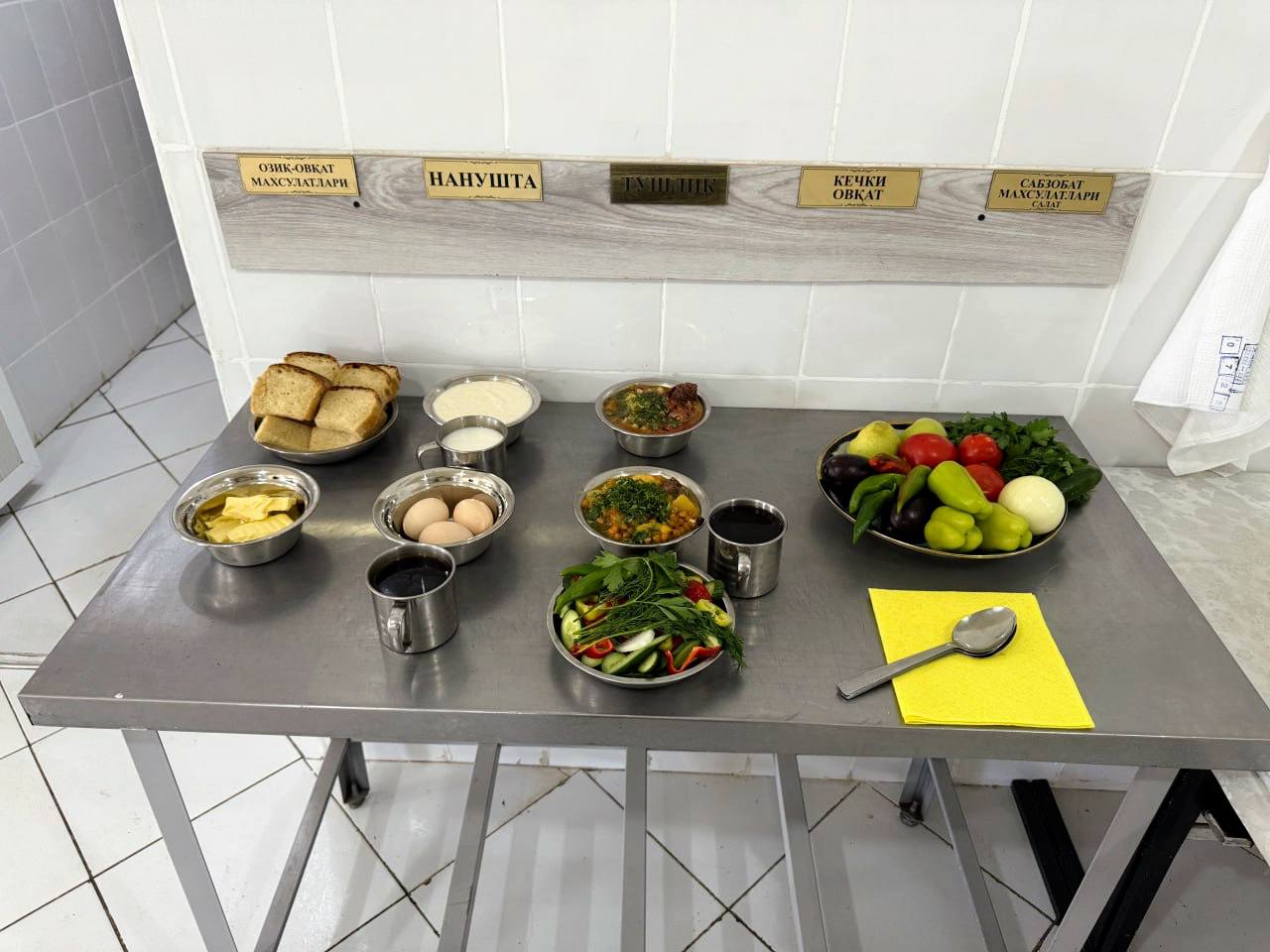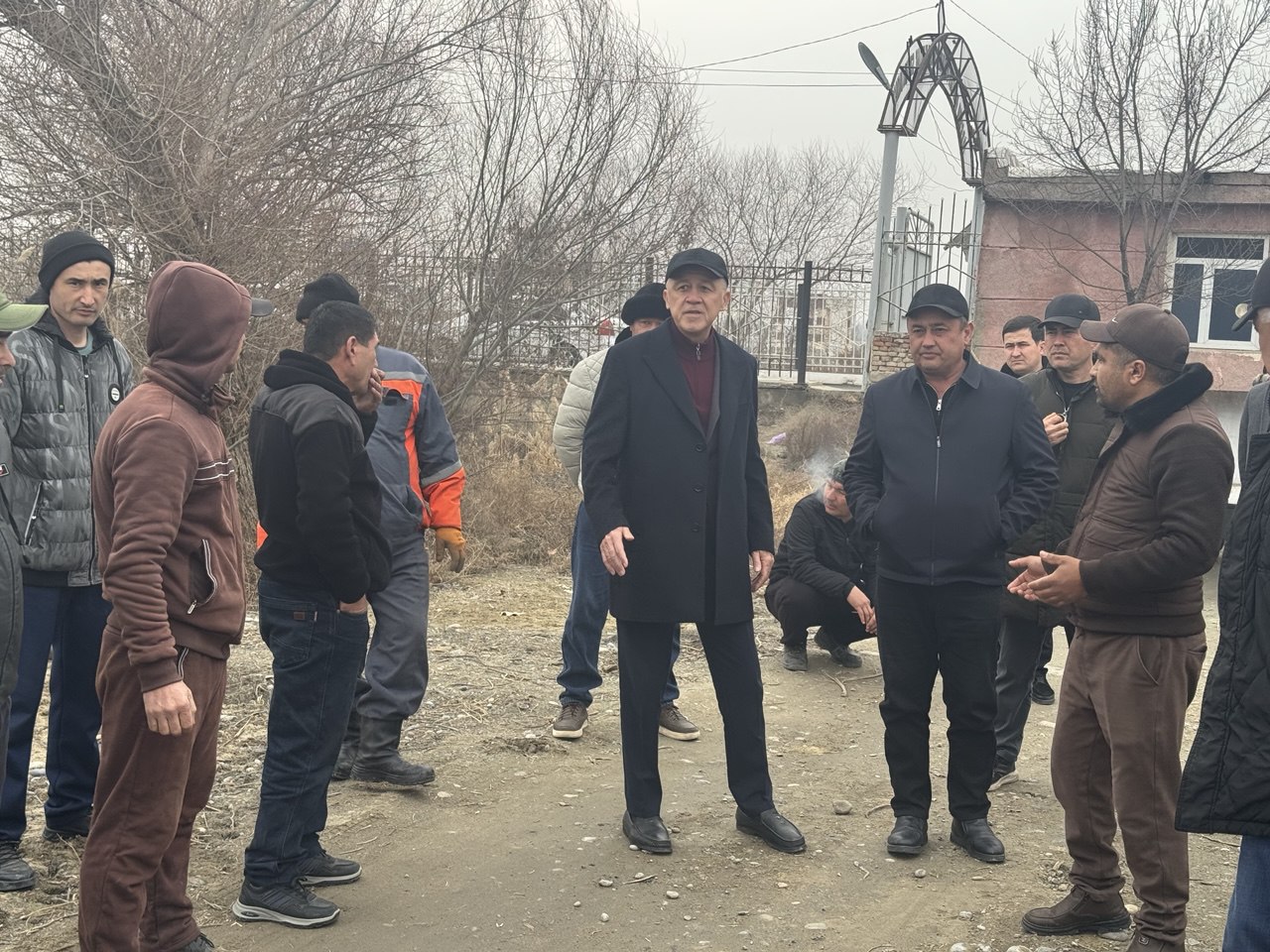Over the course of two days, the conditions were studied in the following institutions: Pre-trial Detention Center No. 2; Temporary Detention Center of the Khodjeyli District Department of Internal Affairs; Temporary Detention Center of the Nukus City Department of Internal Affairs; Penal Settlement Colony No. 27; Special Reception Center for persons subjected to administrative arrest; Rehabilitation Center for homeless persons; medical assistance points for persons in a state of intoxication in the city of Nukus and in the Turtkul district; and the Psychoneurological Dispensary No. 1 of the Republic of Karakalpakstan.
During the monitoring visits, the living conditions, nutrition, and access to medical services of persons held in the pre-trial detention center and temporary detention facilities were analyzed. The state of cells, surveillance systems, the procedure for medical examinations, and the condition of medical units were also reviewed.
At Penal Settlement Colony No. 27, the conditions ensuring employment of convicts, nutrition and medical care, as well as arrangements for short-term and long-term visits, were examined.
At the medical assistance points for persons in a state of intoxication in Nukus, the psychoneurological dispensary, and the rehabilitation center, the socio-living conditions and provision of medical assistance to citizens were analyzed.
During the monitoring, complaints submitted through “Ombudsman Boxes” were reviewed, on-site receptions were held in some institutions, and citizen appeals were heard.
It was noted during the visits that recommendations provided during previous monitoring had been implemented.
Based on the results of the monitoring, with regard to the shortcomings identified at the medical assistance points for persons in a state of intoxication, the Ombudsman will submit measures of response to the relevant ministries and agencies.
Press Service of the Commissioner of the Oliy Majlis for Human Rights (Ombudsman)













